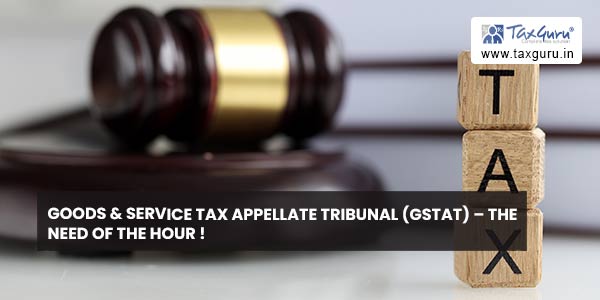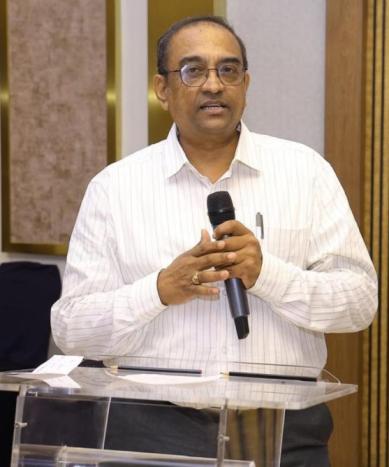As part of the litigation management System an independent body – “A Tribunal”, is constituted to address and redress the grievances of the Taxpayer with reference to the matters under Dispute. This is mandated in terms of Article 323(B) of the Constitution of India. “A Tribunal” is a quasi-judicial institution that is set up to deal with problems such as resolving administrative or tax-related disputes. It performs a number of functions like adjudicating disputes, determining rights between contesting parties, making an administrative decision, tax litigations, reviewing an existing administrative decision, and so forth. When one traces the history of the Constitution of India, Tribunals were not part of the original constitution and it was incorporated in the Indian Constitution by 42nd Amendment Act, 1976. Two Articles were inserted to deal with the following matters.
- Article 323-A deals with Administrative Tribunals.
- Article 323-B deals with tribunals for other matters.
2. Under Article 323 B, the Parliament and the state legislatures are authorized to provide for the establishment of tribunals for the adjudication of disputes relating to many matters including Taxation. Articles 323 A and 323 B differ in the following three aspects:
i. While Article 323 A contemplates the establishment of tribunals for public service matters only, Article 323 B contemplates the establishment of tribunals for certain other matters (indicated illustratively supra).
ii. While tribunals under article 323 A can be established only by Parliament, tribunals under Article 323 B can be established both by Parliament and state legislatures with respect to matters falling within their legislative competence.
iii. Under article 323 A, only one tribunal for the Centre and one for each state or two or more states may be established. There is no question of the hierarchy of tribunals, whereas under Article 323 B a hierarchy of tribunals may be created.
3. With this background about the tribunals, the authority, and its evolution with clearly marked objectives under the Constitution of India, in the legacy Central Excise & Service Tax as well as Customs challenges, the taxpayers were served with Customs, Excise and Service Tax Appellate Tribunal popularly called as CESTAT. CESTAT was created to provide and function as an independent forum to hear the appeals against orders passed by the Commissioners of Customs and Excise and Service Tax under the Customs Act, 1962, Central Excise Act, 1944, and Finance Act 1994. The Tribunal is also empowered to hear the appeals against orders passed by the Designated Authority in Anti-Dumping Duties under the Customs Tariff Act,1975. Over the years the procedures for dealing with various aspects of the Tribunal’s working were formulated and scientifically evolved. This experience will come in handy while establishing a tribunal to resolve GST-related litigations. Under the pre-GST regime, the CESTAT (Customs Excise and Service Tax Appellate Tribunal) played an important role when it came to dispensing indirect tax litigation. Similarly, the Income-tax Appellate Tribunal (ITAT) is also functioning to resolve the disputes relating to Direct tax disputes. Naturally, this expectation continues under the GST regime also.
4. While GST has recently turned five, it has witnessed a myriad of burning issues – right from the transitional provisions to the constitutionality of certain GST provisions as well. While the Government is taking adequate steps to address various industry concerns and contain unnecessary litigation, the pressing need for the establishment of the Goods and Service Tax Appellate Tribunal(GSTAT) remains disquieted even today.
5. At present, one may be aware that the majority of disputed issues are stuck and jammed at the First Appellate level. Most of them have moved directly to the High Court, for resolution, however, considering the cost and time involved there was lot of reluctance. Given the interpretational issues and gap in self-assessment of tax liabilities due to a lack of understanding of the law, there has been a huge rise in litigation. Non-establishment of GSTAT to date has only resulted in a huge backlog of cases and is increasing substantially as each day passes.
6. There are several cases of dispute, where the Appellate authorities have rejected the export refund claims and in the absence of the GST Appellate Tribunal, (GSTAT) taxpayers have been left without legal remedies against such adverse orders thereby blocking huge working capital for Taxpayers, ultimately leading to a colossal financial burden. Positively, assuming that as and when the refunds would be granted, it is likely to result in another tussle to obtain the interest of 6% on delayed refund, where the cost of capital is way too high, which otherwise they would have borrowed from lenders.
7. Another major concern for the taxpayers is interest accrual on the litigated amounts. The delay in the formation of GSTAT and in turn, settlement of the cases when adverse decisions are received by the taxpayers, it will eventually expose them to heavy interest liabilities at 18%, on the dues, which is much higher than the prevailing bank lending rate. Considering the best-case scenario wherein GSTAT gets established and fully functional earliest even by July 2023 (Six years since GST was introduced), interest liability will be approximately more than 100% of the tax liability for demands pertaining to the first year of inception i.e., Financial Year FY 2017-18! This really is an annoying scenario. The challenges faced are not limited to adverse appeal orders but are even faced where the First Appellate authorities rule decisions in favour of taxpayers. It is often noticed from historical experiences that when Taxpayer favorable orders are passed, the Revenue may delay the implementation on the grounds of their intention to further litigate the matter at the next appellate level continuing the never-ending story. However, in the case of ZONES CORPORATE SOLUTIONS PVT LTD Vs COMMISSIONER OF CENTRAL GOODS AND SERVICES TAX DELHI EAST AND ANR, (WP.(C) No. 3620/2020) Honorable Delhi High Court has taken cognizance of this question and held that taxpayers cannot be asked to wait endlessly for the respondents to contest the order of the Commissioner (Appeals).
8. Yes! It is agreed that there are alternative remedies for filing a writ petition before the Honorable High Courts. But it is a reality that these Courts of law generally are averse to entertaining writs involving “disputed questions of fact” and therefore such doors could not be knocked. It is only the Tribunals that are treated as ‘final fact-finding’ authorities and in the absence of GSTAT, most of the issues under litigation involving disputes on facts are festering at lower levels.
9. During the recent 47th GST Council meeting held in June 2022, a six-member Group of Ministers (GoM) was constituted headed by Haryana deputy chief minister Dushyant Chautala to address various concerns raised by the States in relation to the constitution of the GSTAT. The said GoM has cleared the framework and finalized the contours for setting up appellate tribunals to hear disputes and is likely to submit its report to the GST Council. The final call on recommendations is expected to be taken by the GST council when it meets in September 2022 at Madurai. Accordingly, the six-member GoM has proposed to recommend the following inter-alia:-
- The principal bench of the GST Appellate Tribunal (GSTAT) is proposed to be set up in New Delhi, while large states can have up to five benches.
- The appellate body will be headed by a judge from the Supreme Court or the chief justice of a High Court.
- The GoM has agreed with states on relaxing the experience criterion for the appointment of technical members ( 25 years earlier as per Council draft).
- It has also proposed to allow the states to have more than one bench, based on population, (or) / and the number of registered and active GST users.
- It is also proposed that a four-member search and selection committee which will be set up for the appointment of members to the benches. The four-member search and selection committee (ScSC), headed by either the Chief Justice of the Supreme Court (SC) or his representative judge from the SC, will be tasked with the appointment of members to the Benches. It will also consist of the president of the GSTAT, a union government secretary, and a state chief secretary.
- Each of these regional Benches will consist of a judicial officer equivalent of a High Court judge and a senior tax officer from either the Centre or the state as a technical member. In case there is only one or an odd number of Benches in a state, the technical member/members from the Centre and the state concerned will be on a rotational basis to achieve equity.
- An amendment to Section 110 of the CGST Act,2017 which deals with the appointment of the President / Members of the Appellate Tribunal, their qualifications, methodology of appointment, service conditions, etc. replacing the word ‘Government’ with ‘State Government’ will allow the state governments also to relax the experience condition in the appointment of members.
- Once the GoM’s recommendations are accepted by the council appellate bodies can be set up in states and UTs.

10. It is very pertinent to note here that the process of the first appeal under the GST regime happens through individual officers but the second appeal against the orders of the first appellate authorities under Central as well as State tax administration lies with the GSTAT. Therefore, this is the first forum at which the adjudication process converges under all GST laws and all tax administrations.
Before bidding adieu………….
11. Five years have already been completed ever since the introduction of GST and the country is yet to have an appellate body in the form of “A Tribunal” as provided by Article 323-B of the Constitution, to resolve disputes relating to the key indirect tax. The powers are vested under Section 110 of the CGST Act 2017 too. Several interpretational issues have cropped up and it is essential that GST tribunals begin functioning soon with an adequate number of benches before it is too late. The expeditious constitution of the GSTAT only would help avoid the backlog of cases, which leads to delays in deciding pending matters thereby causing hardships to litigants. The business entities have repeatedly raised the need for GSTATs flagging the urgency to expedite the disposal of cases. Further, taxpayers aggrieved by the orders passed by appellate/revisional authorities, can approach the GSTAT instead of approaching the respective High Courts, thereby reducing their caseload.
12. As the old adage goes, “Justice delayed is Justice denied”. Hence, to allay the concerns of the business, setting up GSTAT as a top priority is a MUST without further delay.
Jai Hind!!!!






Tribunals are expensive to establish and run. When tribunals on legacy disputes such as CESTATs can be wound up ? Unfortunately , still many legacy disputes are pending before First appellate authorities such as Commissioner (Appeals ) . There should be a time bound program for clearing the legacy disputes .